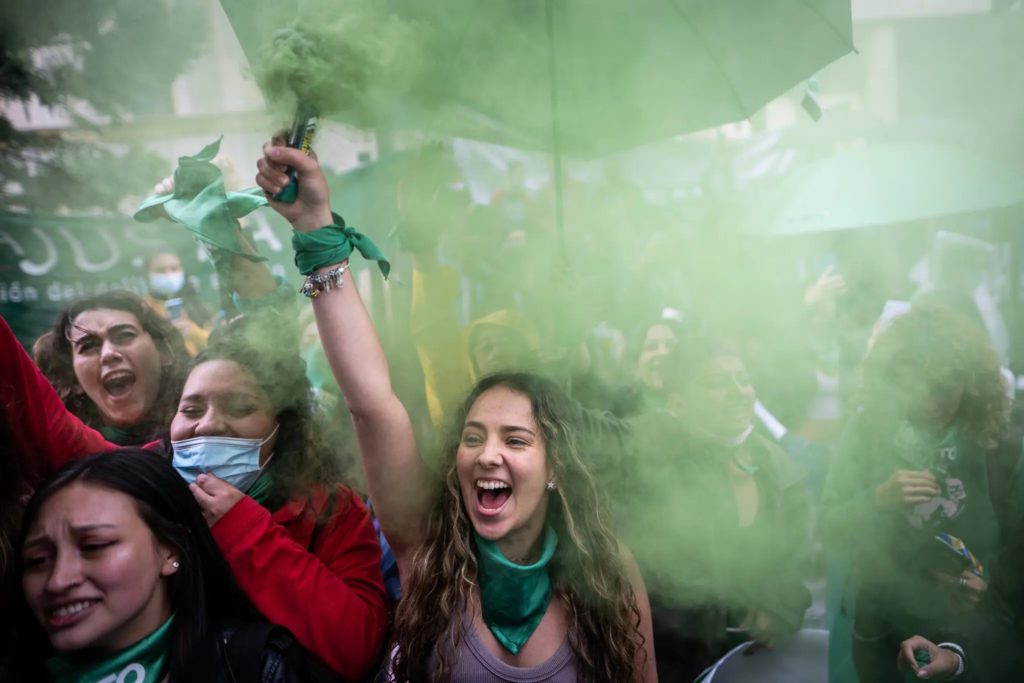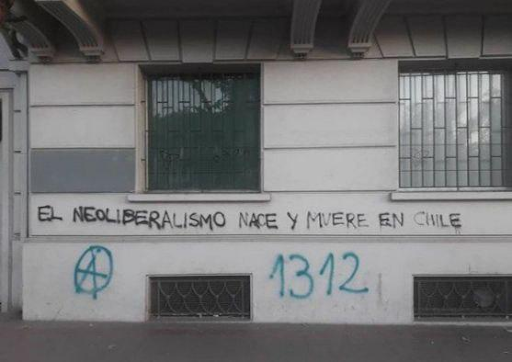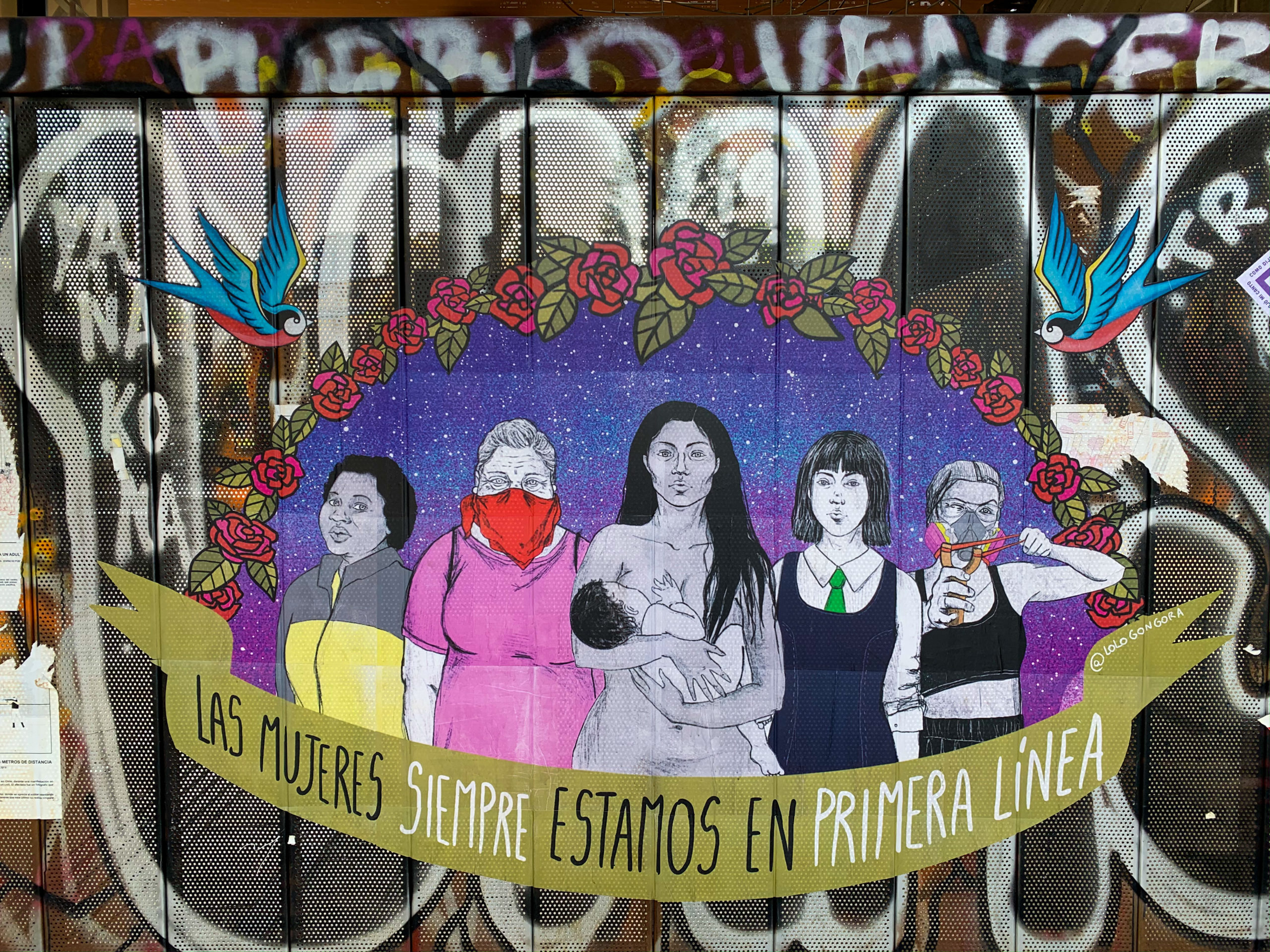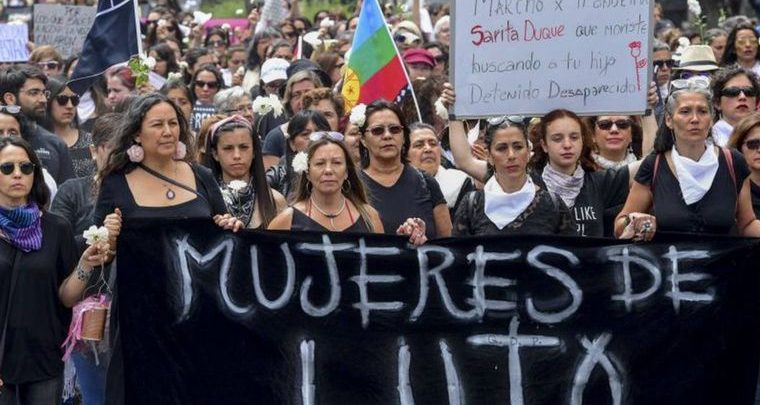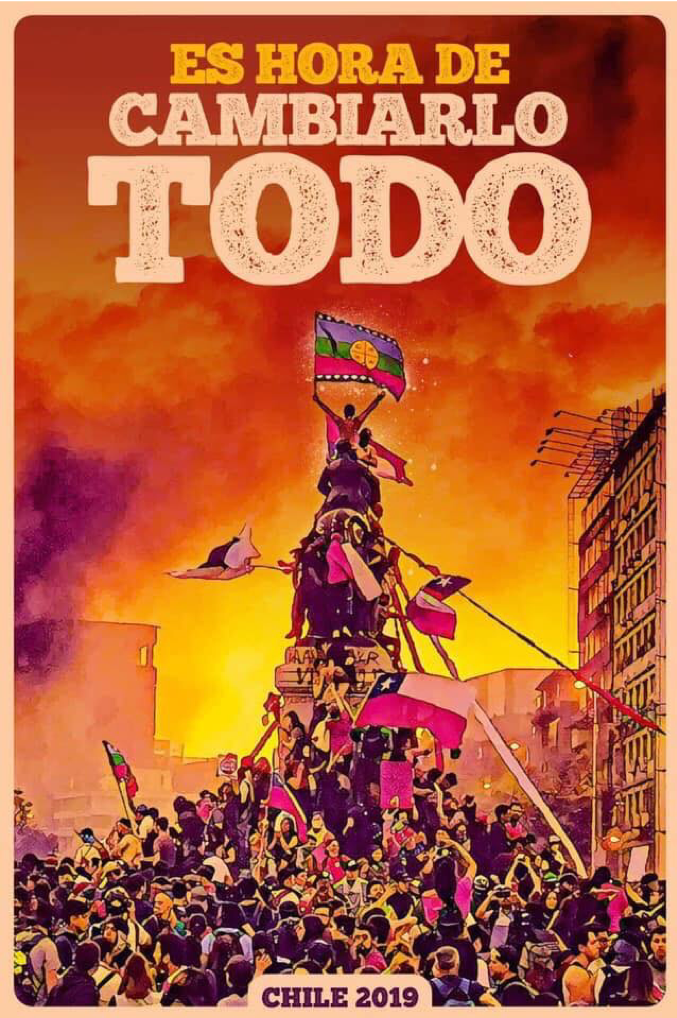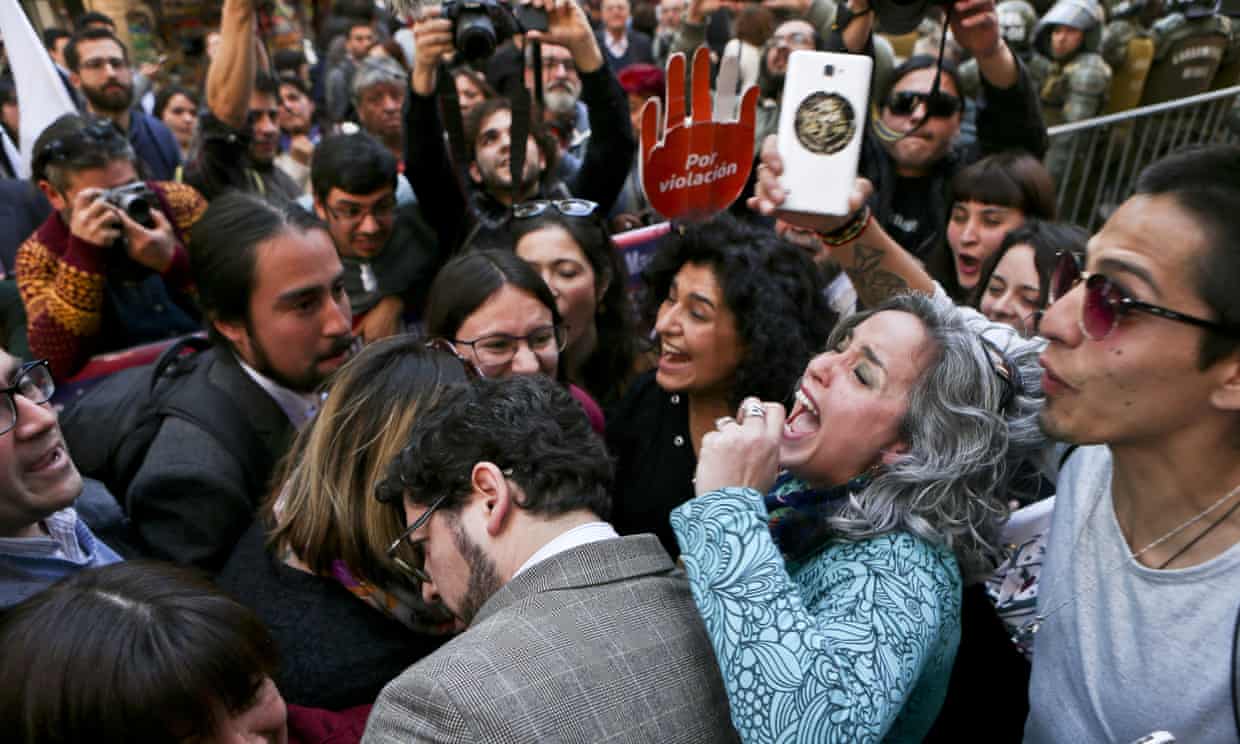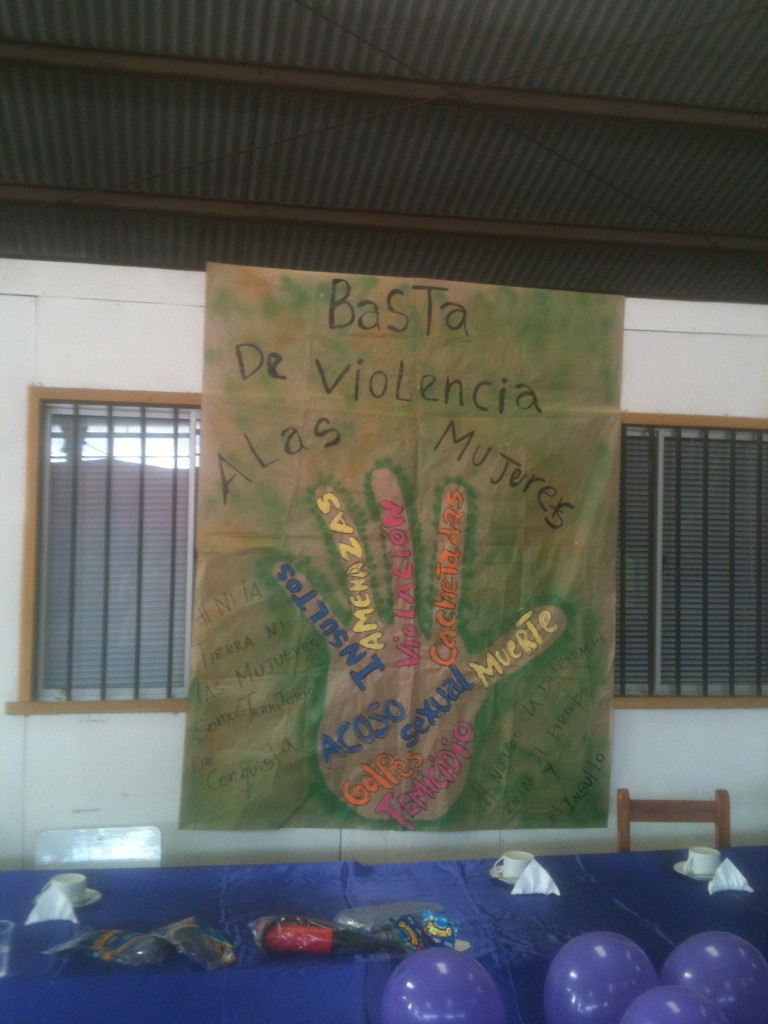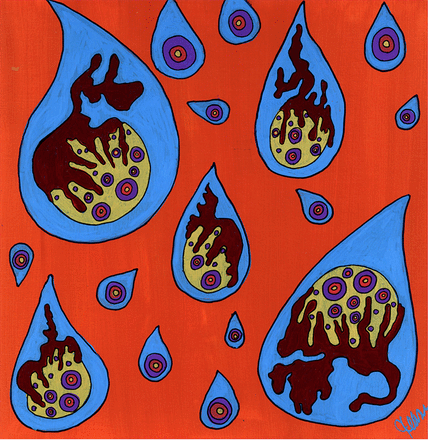
In 2002, a 20-year-old, married rural woman now known as Francisca discovered she was pregnant. She and her partner were elated. When, early in the pregnancy, Francisca went in for tests, she discovered that she was HIV positive. She immediately began a protocol of antiretrovirals. She had a caesarean delivery, successfully, and the child was HIV negative. That child, now 22 years old himself, is still HIV negative. When Francisca emerged from the surgery, a nurse informed her that the surgeon had sterilized her. Francisca never asked for or wanted to be sterilized and had never consented. In 2007, Francisca sued the doctor. In 2008, the case was dismissed; the court decided the doctor’s actions were not criminal. In 2009, the Center for Reproductive Rights and Vivo Positivo took the case, on Francisca’s behalf, to the Inter-American Commission on Human Rights. In August 2021, the Chilean government signed a settlement accepting responsibility and offering something like reparations: a housing subsidy and healthcare for both Francisca and her son as well as a commitment to raise awareness of HIV and reproductive rights. After eleven years of intensive struggle and labor, Francisca responded, “I receive the apology offered to me by the Chilean state… [but] it must be clear that I was not the only one. I am happy to know that my case can serve to end stereotypes about people living with HIV, and to improve healthcare for other women.” Francisca knew and knows: her struggle is a collective struggle is a universal struggle.
From 1935 to 1976, Sweden sterilized women it deemed socially or racially inferior. `No one’ knew about this program until it was revealed in 1997. In 1999, Sweden agreed to pay victim-survivors a one-off payment of $22,6000. Then, in 2012, it was `revealed’ that Sweden required transgender people to undergo sterilization. The law requiring sterilization was passed in 1972, but “no one” knew. In February 2012, thirty years after its passage, the law was repealed.
In 2009, three women, all HIV positive, sued the Namibian government for engaging in forced and coerced sterilization. In 2014, five women, all HIV positive, sued the Kenyan government, two maternity hospitals, and two international ngo’s for engaging in forced and coerced sterilization. In 2014, in Chhattisgarh, India, 15 women died in a `sterilization camp’. Fifty others went in hospital, with at least 20 in critical condition. The world was forced to `discover’ the widespread policy of forced sterilization … yet again. In 2014, California formally banned forced and coerced sterilization of women prisoners. In 2015, the Virginia legislature agreed to pay $25,000 in compensation to those who had suffered forced sterilization during the Commonwealth’s decades long adventure in eugenics. In 2015, in South Africa, 48 women living with HIV and AIDS who had suffered forced sterilization lodged a formal complaint against the South African government. In 2018, former President of Peru Alberto Fujimoro was formally informed he would be charged with having engaged in forced sterilizations on thousands of indigenous women, during his reign of terror. That case is still pending. In 2018, Native and Indigenous women in Canada filed a class action lawsuit for decades of forced sterilizations in Saskatchewan, Ontario and Manitoba. In 2019, the Japanese legislature offered a one-off compensation of around $28,770 to victim-survivors of forced sterilization. That was the result of a 23-year campaign.
Francisca and her supporters know this long and arduous history. They knew all along that no state has ever willingly, easily acknowledged the torture, violation, cruelty of decades of forced sterilization. They knew that doctors always claimed, as did Francisca’s, that they knew what was right and wrong, and that the forced sterilization was the ethical route. The ostensible reasons differed from one area to another, from one period to another, but the underlying current was always the same. The women were subhuman and needed, demanded, to be violated.
On May 26, 2022, newly elected President Gabriel Boric announced, “I would like to start by apologising to Francisca …. for the serious violation of your rights and also for the denial of justice and for all the time you had to wait for this. How many people like you do we not know? It hurts to think that the state, which today I have the honour to represent, is responsible for these cases. I pledge to you, and to those who today represent you here in person, that while we govern, we will give the best of each one of us as authorities so that something like this will never happen again and certainly so that in cases where these atrocities have already been committed, they will be properly redressed.”. Boric went on to promise to provide specialist training to medical workers on HIV/AIDS to curb discrimination and to ensure that judges and lawyers are aware that affected women have a right to reparations.
Chilean activist Elayne Leyton responded, “For years, no one has talked about women living with HIV. We’ve had to hide in our houses like rats, suffer discrimination, and practically eliminate ourselves from society. At last, someone is taking responsibility.” Elayne Leyton has lived with HIV since the late 1990s. Sara Araya, Coordinator of Vivo Positivo, added, “Finally, justice was done; through this case we call on all governments to continue to invest in the elimination of HIV discrimination in all services, including health care”. Finally, Francisca, who, in order to protect her anonymity, was not at the announcement, sent this message, “I would love to have been me, with my voice, my face and my body, the one who after so many years of struggle stood present to lead this act in my own name. However, making my identity known would have closed endless doors for me. To this day, people who carry HIV are still looked down upon with contempt as if it was our decision to become infected. However, I want to believe with conviction that this will change.”
(By Dan Moshenberg)
(Image Credit: Jennifer Leason / Canadian Family Physician)
